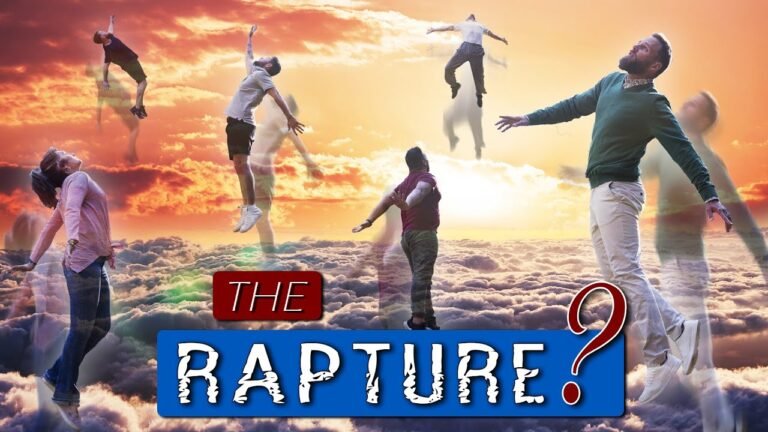Understanding the Concept of Rapture

The concept of rapture has fascinated and perplexed believers and scholars alike for centuries. Often associated with apocalyptic themes, it refers to a moment when the faithful are said to be taken up to heaven, leaving the world behind. This intriguing idea is rooted in various religious texts and interpretations, prompting questions about its origins, implications, and the differing views held by various denominations. As discussions around the rapture continue to evolve, understanding its significance becomes crítico in grasping the broader context of faith and eschatology.
How does the Bible define rapture?
The Rapture, a central belief in Christian eschatology, envisions a profound moment when both living and deceased believers will be united with Jesus Christ in heaven. This event, often associated with the Second Coming, signifies a divine promise of salvation and hope, marking the culmination of faith for those who have devoted their lives to Christ. As believers eagerly anticipate this transformative experience, the Rapture serves as a reminder of the ultimate reunion and eternal life that awaits them beyond earthly existence.
What does the word rapture mean?
Rapture embodies a profound and exhilarating experience, often associated with intense joy or passion. It reflects a moment when one is completely consumed by their emotions, transcending the ordinary to enter a realm of ecstatic delight. Whether in art, music, or love, rapture captures the essence of those fleeting instances that leave us breathless and spellbound.
This state of being carried away by overwhelming feelings can transform mundane moments into extraordinary ones. It serves as a reminder of our capacity to experience life in its fullest, where every heartbeat resonates with the thrill of existence. In embracing rapture, we not only celebrate the highs of our emotional spectrum but also connect deeply with the world around us, savoring each vivid sensation that life has to offer.
In which parts of the Bible is the Rapture referenced?
The concept of the Rapture is primarily derived from 1 Thessalonians 4:15–17, where it describes believers being caught up in the clouds to meet the Lord. This passage emphasizes a moment of hope and transformation for those faithful to Christ, serving as a pivotal point in eschatological teachings. Interpretations of this event vary, with some seeing it as a distinct occurrence from the Second Coming, while others argue for its identification with the return of Jesus as outlined in Matthew 24:29–31.
In the premillennial understanding, the Rapture is viewed as a precursor to a literal earthly millennium, suggesting that believers will be taken up before a period of tribulation. This perspective highlights the anticipation and urgency among Christians to remain faithful, as they await the promised return of Christ. The differing interpretations reflect the diverse theological landscapes within Christianity, shaping the beliefs and hopes of millions regarding the end times.
Exploring the Theological Foundations
At the heart of many religious traditions lies a complex tapestry of theological beliefs that shape the understanding of existence, morality, and the divine. These foundations serve not only as guiding principles for personal faith but also as a framework for community values and ethical behavior. By examining the core tenets of various faiths, we uncover the shared quest for meaning that transcends cultural boundaries, inviting individuals to explore the profound questions of life and the universe.
Theologians and scholars have long engaged in the study of sacred texts and doctrines, seeking to articulate the essence of the divine and humanity’s relationship with it. This exploration reveals a rich diversity of interpretations, from the nature of God and creation to concepts of salvation and justice. Through dialogue and reflection, believers are encouraged to delve deeper into their faith, fostering a sense of connection not only with the divine but also with one another as they navigate the complexities of modern life.
As we explore these theological foundations, we recognize their relevance in addressing contemporary issues such as social justice, environmental stewardship, and interfaith dialogue. The insights gained from these traditions can inspire collective efforts toward a more compassionate and equitable world. By embracing the richness of diverse theological perspectives, we cultivate a deeper understanding of our shared humanity and the moral imperatives that guide us in our journey together.
A Deep Dive into Biblical Interpretations
Exploring biblical interpretations reveals a rich tapestry of thought that spans centuries and cultures. From the allegorical readings of early church fathers to the historical-critical methods employed by modern scholars, each approach offers unique insights into the texts. These interpretations shape our understanding of moral teachings, historical context, and theological concepts, inviting believers and seekers alike to engage with the scriptures on multiple levels. The diversity in interpretation reflects the dynamic nature of faith and the ongoing dialogue surrounding sacred texts.
As we delve deeper into these interpretations, we uncover the ways in which they influence contemporary beliefs and practices. Different denominations and faith traditions often emphasize distinct aspects of scripture, leading to various applications in daily life. This multiplicity not only enriches the spiritual landscape but also challenges individuals to reflect critically on their beliefs. By understanding the historical and cultural contexts of biblical texts, we can appreciate the profound impact they have on both personal spirituality and communal identity, fostering a more inclusive conversation around faith.
The Impact on Faith and Belief Systems
In an increasingly interconnected world, the impact on faith and belief systems is profound and multifaceted. As diverse cultures and ideologies collide, traditional beliefs are both challenged and enriched, prompting individuals to reassess their spiritual foundations. This dynamic exchange fosters greater understanding and tolerance, yet it can also lead to conflict and division among those clinging to long-held doctrines. As people navigate this evolving landscape, many find strength in adapting their beliefs to embrace inclusivity and compassion, ultimately shaping a more harmonious coexistence that honors both individuality and shared humanity.
Rapture in Culture: Myths and Realities
Rapture has long captivated the human imagination, intertwining itself with cultural narratives across various societies. From ancient mythologies to contemporary interpretations, the concept evokes both fear and fascination, often representing a transformative experience that promises salvation or doom. In literature and art, rapture manifests as a powerful force, shaping characters’ destinies and reflecting societal values. Yet, the realities behind these myths reveal a complex tapestry of beliefs and emotions, challenging us to confront our own perceptions of hope, despair, and the unknown. As we explore the myriad ways rapture influences culture, we uncover not only the stories we tell but also the deeper truths that resonate within us all.
Preparing for the Unseen: Insights and Reflections
In a world filled with uncertainties, preparing for the unforeseen is not just a strategy but a necessity. Embracing adaptability and resilience allows individuals to navigate unexpected challenges with confidence. By cultivating a mindset open to change, we can transform potential setbacks into opportunities for growth. This proactive approach fosters a sense of empowerment, enabling us to face life’s unpredictability with clarity and purpose.
Reflecting on past experiences can provide invaluable insights into how we might handle future obstacles. Each challenge faced is a lesson learned, contributing to our personal toolkit for resilience. By remaining mindful of our strengths and the resources available to us, we can better anticipate the twists and turns that life may present. Ultimately, preparation for the unseen is about harnessing our inner capabilities and turning uncertainty into a canvas for possibility.
Understanding what a rapture entails opens up a fascinating dialogue about human beliefs and the mysteries of existence. Whether viewed through a religious lens or considered as a cultural phenomenon, the concept invites reflection on our deepest hopes and fears. Engaging with the idea of rapture not only enriches our spiritual perspectives but also challenges us to explore the transformative power of connection and transcendence in our lives.


